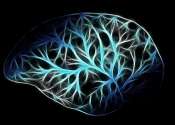Do microglia hold the key to stop Alzheimer's disease?
A Leuven research team led by Prof. Bart De Strooper (VIB-KU Leuven, UK DRI) studied how specialized brain cells called microglia respond to the accumulation of toxic proteins in the brain, a feature typical of Alzheimer's. ...
May 1, 2019
0
10








